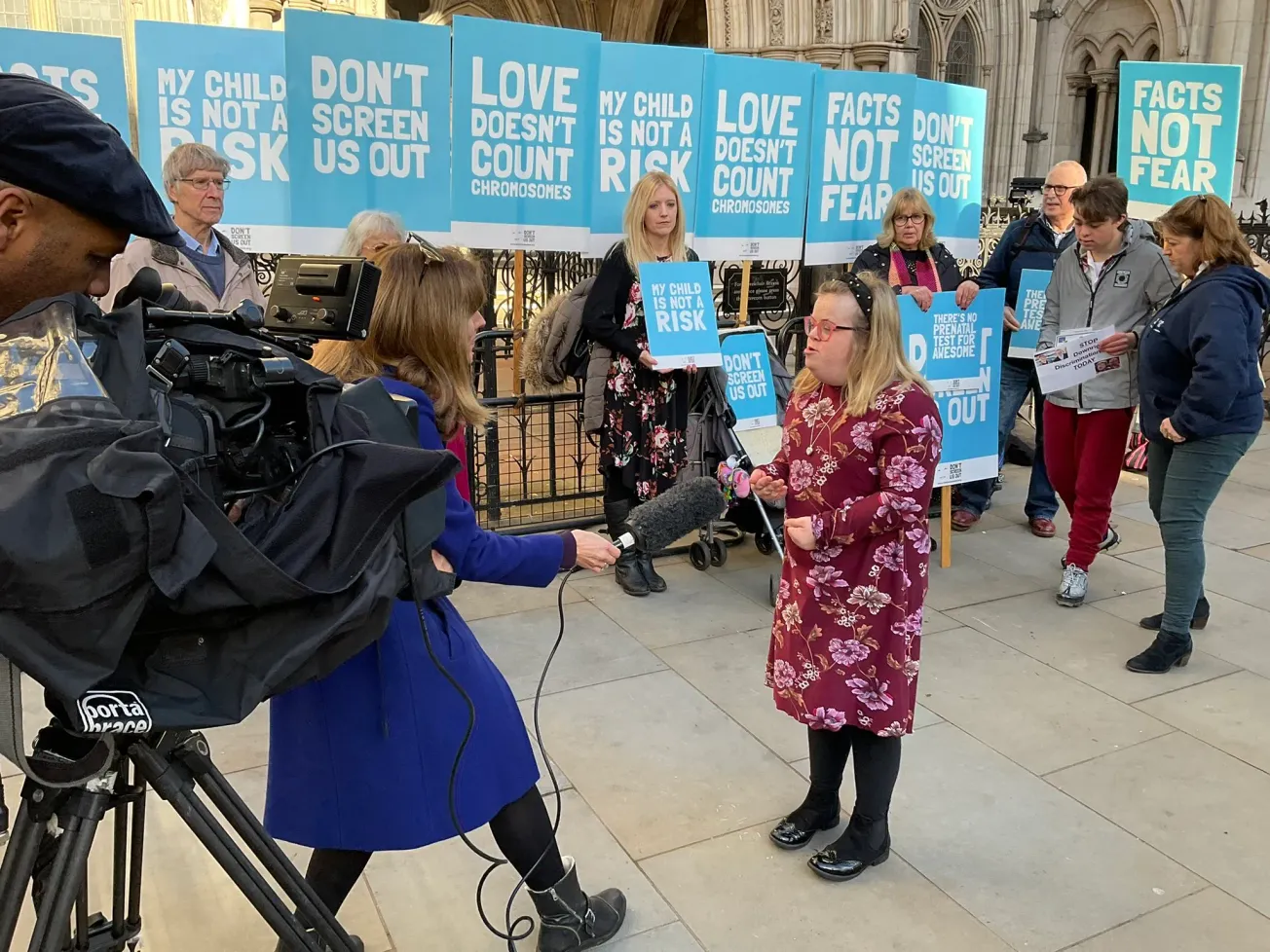Table of Contents
Ann Farmer
Ann Farmer, mother of three, grandmother of five and permanently disabled, is based in Woodford Green, Essex. She is a poet, illustrator, writer and pro-life feminist devoted to defending the natural family and the weakest in society from abortion and euthanasia. She has published a number of books and contributes to Gript, The Conservative Woman, MercatorNet and The Imaginative Conservative websites.
Judges at the UK Court of Appeal have turned down a legal challenge against a section of the Abortion Act that allows abortion up to birth for disabled babies.
Heidi Crowter, a 27-year-old woman who has Down syndrome, brought the challenge along with Maire Lee-Wilson, whose son Aidan has Down syndrome. They argued that this legislation is an instance of inequality. The 1967 Abortion Act allowed abortions up to the limit of viability – then seen as 28 weeks – but in 1990, when the limit was lowered to 24 weeks, abortions were excluded if there were “a substantial risk … it would suffer from such physical or mental abnormalities as to be seriously handicapped”. Down syndrome was amongst these abnormalities.
Ms Crowter declared in a tweet that: “When mum told me about the discrimination against babies like me in the womb I felt like a knife had been put into my heart. It made me feel less valued than other people.”
When mum told me about the discrimination against babies like me in the womb I felt like a knife had been put into my heart. It made me feel less valued than other people.https://t.co/T7RP4vbuxN
— Heidi Crowter-Living the dream (@HeidiCrowter95) September 29, 2021
Court of Appeal judges Lord Justice Underhill, Lady Justice Thirlwall and Lord Justice Peter Jackson ruled that the Abortion Act did not interfere with the rights of the “living disabled”. Therefore, they reasoned, the law was striking a balance between the rights of the unborn child and women.
It is a strange sort of balance that allows one party to be legally killed at the behest of another (albeit badly advised). In these enlightened times, when terms like ‘abnormalities’ and ‘handicapped’ are viewed with horror, the judges have decided that these babies have no rights at all; they (or ‘it’) can be killed right up to birth – even when in the birth canal — and with medics piling pressure on parents to choose abortion, these silent victims need people willing to speak up for them.
Ms Crowter has vowed to fight on.
Ms Crowter, whose husband also has Down, said:
“‘When Wilberforce wanted to abolish the slave trade he didn’t give up when things didn’t go his way. I won’t give up either because the law should be changed to get rid of a negative focus on Down syndrome – even the words used in it are offensive.”’
She added:
‘“This law was made in 1967 when we were not even allowed to go to school because of our extra chromosome, so I think it’s time that the judges move with the times and actually meet people with Down’s syndrome and see the people behind the chromosome.”’
Lynn Murray of Don’t Screen Us Out, which is supporting Ms Crowter, commented:
‘“We are absolutely devastated about this ruling because it’s so illogical. People with Down’s syndrome are discriminated against all the time in education and the workplace and health care and the judge has just upheld this.”’
She said the ruling ‘“encapsulates the message that their lives are not of equal value, of dignity. It’s just wrong in a progressive society.”
Clearly, one of the biggest drivers of the discriminatory attitude to Down syndrome and other disabilities is the “substantial risk” that the Department of Health and Social Care might have to provide health and social care to those seen as less than perfect. It also reduces the ‘risk’ that no other person so ‘seriously disabled’ that they are viewed as better off dead can bring a legal challenge against this terrible law.
The judges ruled that the Abortion Act does not interfere with the rights of the “living disabled”, but these innocent babies are alive – until, of course, they are deliberately killed.
The World Cup competition highlighted the issue of diversity, but in the light of this ruling, this seems a charade. No one in our woke establishment is willing to take the knee against this lethal discrimination against Down syndrome.
Thank God that Heidi Crowter and Aidan Lee-Wilson are living proof of the odious nature of this law.









